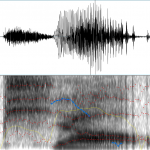Articles tagged with ‘Tones’ Page 3
-
Learning tones in Mandarin is not optional
Learning tones in Mandarin is not optional. The longer you wait before paying attention to tones, the more you will have to relearn later. If you don’t know the tone, you don’t know the word. It takes time to learn to hear tones and treat them as integral parts of syllables, but the sooner you start, the better.
Read → -
The Hacking Chinese free tone training course
Learning to hear the difference between tones is difficult for many learners. Research shows that speaker variability and a systematic and predictable approach are key to overcoming the problem. With this article, I launch a tone training course, which is meant to provide you with just that. For free!
Read → -
Learning to hear the sounds and tones in Mandarin
Learning to hear the difference between tones in Mandarin can be difficult for adult learners. In this article, I introduce two effective ways of overcoming this problem, as well as my own research project, which is meant to help students and will be available soon.
Read → -
24 great resources for improving your Mandarin pronunciation
In this article, I list 24 great resources for learning pronunciation. Naturally, some of them are limited to Mandarin Chinese, but many are more general in nature and works for other Chinese dialects or even other languages. Resources are sorted into Basic sound references, Pronunciation explained, Advice on learning pronunciation and Useful software and applications.
Read → -
How to find out how good your Chinese pronunciation really is
Evaluating pronunciation needn’t be hard, but many methods commonly used by teachers are deeply flawed, resulting in inaccurate error analysis. If we want to improve, we need to be clear about what we need to improve first. This article looks at some problems with commonly used methods to evaluate pronunciation and suggests some alternatives.
Read → -
Two reasons why pronunciation matters more than you think
Good pronunciation matters, whether you like it or not. In general, students (and teachers) tend to stop caring about pronunciation much earlier than they should. You don’t need to aim for native-like pronunciation, but clear and easily-understood Chinese should be the goal of all students. In this article I present two arguments: one about the fact that pronunciation and communication are closely linked, one about how pronunciation reflects both you as a person and your other skills.
Read → -
Focusing on tone pairs to improve your Mandarin pronunciation
When learning to pronounce tones in Chinese, it makes sense to focus on words rather than single syllables. Most words in Mandarin are disyllabic and since practising these will also include tone changes (sandhi), focusing on tone pairs is recommended. This article gives you all HSK and TOCFL words, sorted by tone! First all [first tone] + [first tone], then all [first tone] + [second tone] and so on. This is great for students who need words to practise difficult combinations, but it’s also useful for teachers.
Read → -
About fossilisation and improving your Chinese pronunciation
It’s a fact that most foreign adults don’t acquire native like pronunciation in Chinese, but what’s the reason? In most debates at this point, someone will throw in the word “fossilisation”, as if that actually explained anything. This article is about why the concept of fossilisation is bunk and how we should think about adult pronunciation instead.
Read → -
Don’t use mnemonics for everything
Mnemonics are really cool, but you shouldn’t overuse them. Chinese characters are very complex and the amount of information you might want to remember about them is large. Creating mnemonics for everything is very time consuming and difficult. Instead of doing this, create mnemonics only for things you actually find hard to remember.
Read → -
Extending mnemonics: Tones and pronunciation
Using mnemonics to memorise concrete objects is fairly easy, but how can we use mnemonics to remember abstract things such as tones and pronunciation? In this article, I expand my previous discussions of mnemonics and show how they can be quite powerful if you’re prepared to invest some extra time.
Read →









